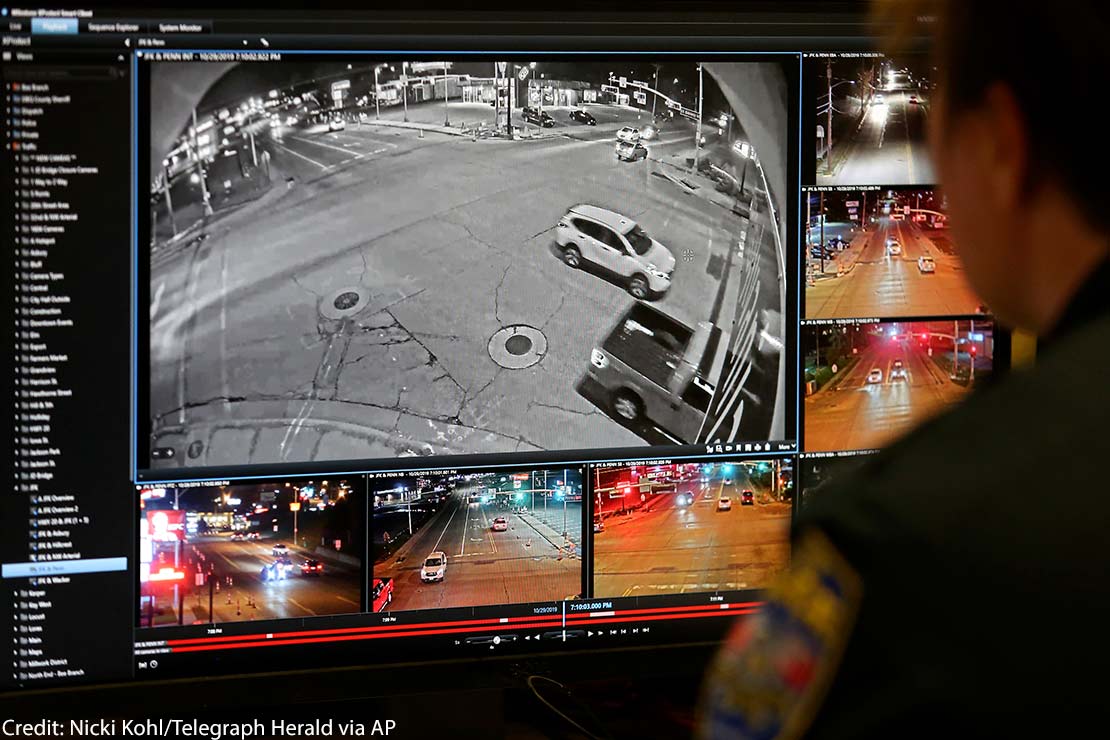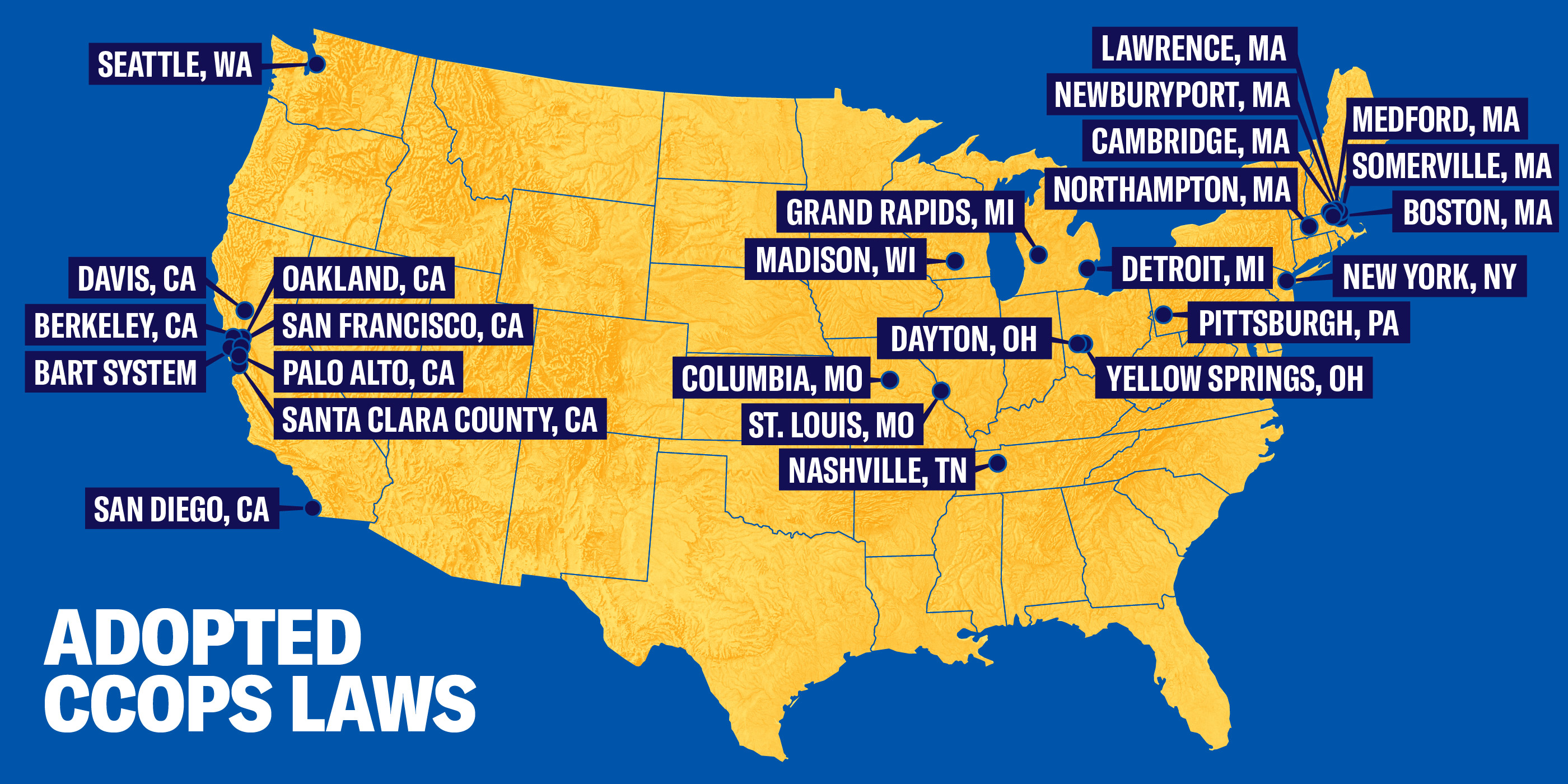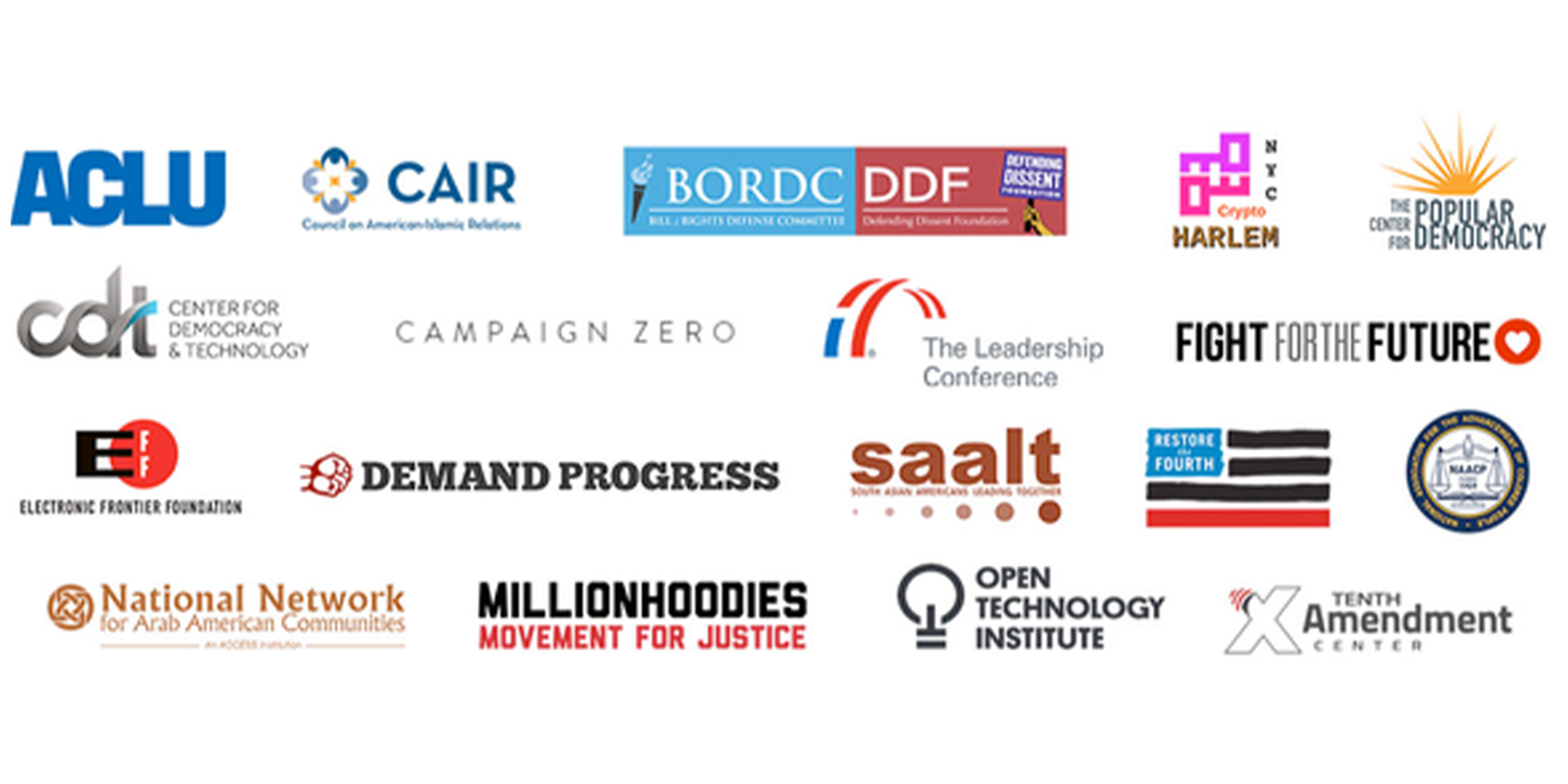
Community Control Over Police Surveillance
(CCOPS)
Why We Need CCOPS: Surveillance, Racism, Trump, and More
For the information you need to start a CCOPS effort in your own city or town, including the CCOPS model bill, visit our resource library.
The increasing use of surveillance technologies by local police across America, especially against communities of color and other unjustly targeted groups, has been creating oppressive and stigmatizing environments in which every community member is treated like an enemy of the state or a prospective criminal. Many communities of color and of low income have been turned into open air prisons, where residents’ public behavior is monitored and scrutinized 24 hours a day. In most cities, decisions to acquire and use spying technologies are made by police departments, in secret, without any knowledge or input from the public or their elected officials. This process has been condemned by groups across the political spectrum as antithetical to good government transparency and accountability principles.
It was against this backdrop that the Community Control Over Police Surveillance (CCOPS) campaign was launched on September 21, 2016. The effort’s principal objective is to pass CCOPS laws that ensure local residents, through their city council representatives, are empowered to decide if and how surveillance technologies are used – a goal it achieves by maximizing the public’s influence over those decisions.
Existing CCOPS Laws: National Map

Since the campaign’s launch, the need for CCOPS laws has grown significantly due to two transformational moments. First, CCOPS gained additional urgency on November 8, 2016 when Donald Trump was elected president on a platform that included identifying and deporting millions of undocumented immigrants, tracking Muslims, and even more aggressively policing communities of color. CCOPS laws were needed to empower city councils to say “no” to these increased surveillance efforts and the secret sharing of surveillance data with federal agencies like ICE. The need for CCOPS laws escalated again in 2020 after the death of George Floyd, as nationwide police defund/divest movements gained momentum. CCOPS laws are critical to ensuring lower-funded police forces simply do not pivot from more costly, racially biased human policing to less costly, racially biased high-tech policing.
To date, CCOPS laws have been adopted in 26 jurisdictions from coast to coast, where they serve to protect and empower nearly 18 million people. In 2019, the nation’s first municipal ban on the use of facial recognition technology came as a part of a CCOPS law in San Francisco, and in 2020, the nation’s largest city and police force – New York City – adopted a CCOPS law.
Governments and police forces should not be able to use surveillance technologies for any purpose without informing and securing the permission of the people they serve. If you don’t have that right where you live, you should demand your elected representatives sponsor and adopt a CCOPS law. This website has all the resources you need to start a CCOPS effort in your own city or town, and the ACLU is standing by to help!
Guide to Surveillance Technologies: Technology 101
The proliferation in local police departments’ use of surveillance technology, which in most places has occurred without any community input or control, presents significant threats to civil rights and civil liberties that disproportionately impact communities of color and low-income communities. The nationwide “Community Control Over Police Surveillance” effort is looking to change that through legislation mandating that local communities are given a meaningful opportunity to review and participate in all decisions about if and how surveillance technologies are acquired and used locally.
Here is a list of costly and invasive surveillance technologies that might be recording you, your family, and your neighbors right now:
Stingrays
Automatic license plate readers (ALPRs)
Electronic toll readers or E-ZPass
Closed-circuit television cameras (CCTV; video surveillance)
Biometric surveillance technology
Gunshot detection and location hardware and services (ShotSpotter)
X-ray vans (Z Backscatter Vans)
Surveillance enabled lightbulbs (Surveillance capable bulbs or fixtures)
Hacking software and hardware
Social media monitoring software or SMMS
Through-the-wall sensors/radar (TTWS)
Police body cameras
Predictive policing software
Three Reasons Cops Shouldn't Snoop in Secret
Did you know that local police can monitor your online activity, track your commute and record your every step? This type of magnified surveillance affects some people more than others. This was the was the CCOPS launch video, prepared in September 2016. Watch to learn more and #TakeCTRL.

Community Control Over Police Surveillance is a partnership of

Press contact: media@aclu.org
Stay informed
Sign up to be the first to hear about how to take action.
By completing this form, I agree to receive occasional emails per the terms of the ACLU's privacy statement.
By completing this form, I agree to receive occasional emails per the terms of the ACLU's privacy statement.